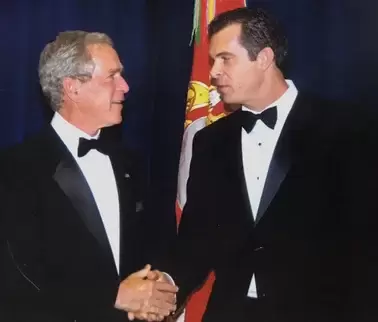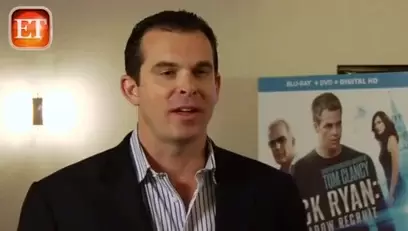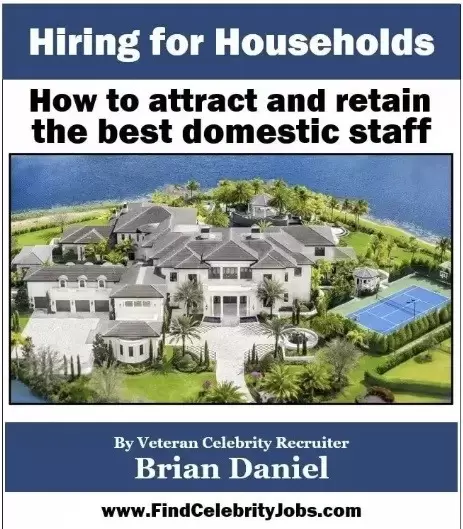|
9/9/2020 SPOTLIGHT interview with Mr. Bencie: Security for Celebrities, Billionaires, Kings & Presidents This week's interview is with Mr. Luke Bencie, a global security expert and founder of the internationally recognized consultancy Security Management International, which has offices in the United States and the United Kingdom. Mr. Bencie has published five books, holds two master’s degrees, and engages in public speaking – with a TEDx talk to his credit.  U.S. President George W. Bush & Luke Bencie U.S. President George W. Bush & Luke Bencie Mr. Bencie, you’ve had a storied career in security protecting high-net-worth individuals and politicians all over the world. I read that while on assignment you’ve been mugged, drugged, detained, blackmailed and even shot at. What does it take to be a personal protection agent for celebrities and the super-rich? Discretion and the ability to detect when a situation has the potential to become dangerous -- and to have a contingency plan for that situation -- are essential for providing security to celebrities and high-net-worth individuals. As a former Executive Personal Assistant for celebrities, billionaires and royalty, one of the biggest surprises of my career was discovering how little protection some high-profile people have. It’s not uncommon for Hollywood A-list, for example, to hire childhood friends as security when they have no formal training to speak of. In fact, there are a number of high-profile instances in which celebrity security went awry and got themselves -– and their celebrity bosses -– into legal trouble. Sadly, too many times, celebrities hire their friends for security and other “entourage” positions. This is a tremendous mistake, as poor security training can lead to serious blowback against the celebrity’s reputation, should an incident unfold. Legal liabilities, along with PR disasters, are not worth the risk, simply to give a “buddy from the old neighborhood” a job. According to CNBC News, there are about 50,000 households in the US that have net worth between 50 and 500 million dollars. Additionally, there are more than 600 billionaires spread throughout the 50 states. How seriously should high-net-worth families be thinking about personal protection, kidnapping, and having a “safe room” in their homes? If a high-net worth individual is not thinking about personal security, then he/she is putting themselves -- and often times their families -- at serious risk. Kidnap and ransom, extortion, blackmail, and other threats are becoming more common, thanks to the ease/anonymity of online stalking as well as virtual payment platforms. Safe rooms are valuable, but only if there is a notification system and security protocols established ahead of time. Otherwise, it’s like having a fire alarm in your house with no batteries in it.  Mr. Bencie on Entertainment Tonight consulting on an A-list Hollywood movie (Tom Clancy/Jack Ryan) Mr. Bencie on Entertainment Tonight consulting on an A-list Hollywood movie (Tom Clancy/Jack Ryan) High-net-worth families often have multiple estates and can employ hundreds of staff: assistants, house managers, chefs, gardeners, nannies, etc. Even if personal protection officers are not employed full-time on-site, what kind of security training should domestic staff have at the minimum? I believe that domestic staff should be trained in the following fundamental security skills: threat/surveillance detection, counter-espionage tradecraft (i.e., understanding elicitation and HUMINT [social engineering ] techniques), and have some type of basic medical training (CPR, AED, first aid). They should also be versed in the property’s emergency response and crisis management plans, to include conducting an annual tabletop exercise as well as full-scale exercise. A number of very high-profile Hollywood types have been victims of “celebrity swatting.” Of course that poses all kinds of security problems for so many reasons, especially when SWAT teams break down the front doors of celebrities' homes only to find out it’s all a hoax. What’s your take on this situation? Celebrity swatting -- or calling in an emergency response hoax to a person’s home -- is a serious crime. It is typically utilized as a harassment method against the owner of the home or as a way to covertly video record the response for social media broadcasting purposes. False bomb threats, or reports of fictitious hostage situations, have been around for decades. However, with the advent of telephone number spoofing systems, it makes it much harder for law enforcement to trace back the phony call to the dispatcher. To counteract the threat of swatting, some police departments have created opt-in registries for celebrities and high-net-worth individuals who fear that they might be victims of such hoaxes. Establishing a professional relationship with law enforcement and first responders is a great way to ensure greater personal protection. We often leave our last question open. What are your final thoughts about what people should know about the security industry? Most people are naïve to the daily threats going on around them. As such, they are typically unsure as to what constitutes a top-tier security professional versus a middle-of-the-road bodyguard. Backgrounds for security experts can vary. Some people come from a law enforcement background, while others come from the military. Myself, I come from an intelligence background. One field is not necessarily better than the other. However, each discipline will look at a threat through a different lens. The key for any celebrity or high-net-worth individual is to determine which security personality -- and that individual’s subsequent security experience -- is right for them and their family. Posted by Brian Daniel Comments are closed.
|
Domestic Staffing BlogWritten for assistants and estate managers working for celebrities, CEOs, UHNW families, billionaires and royalty. |
Search by typing & pressing enter


 RSS Feed
RSS Feed
